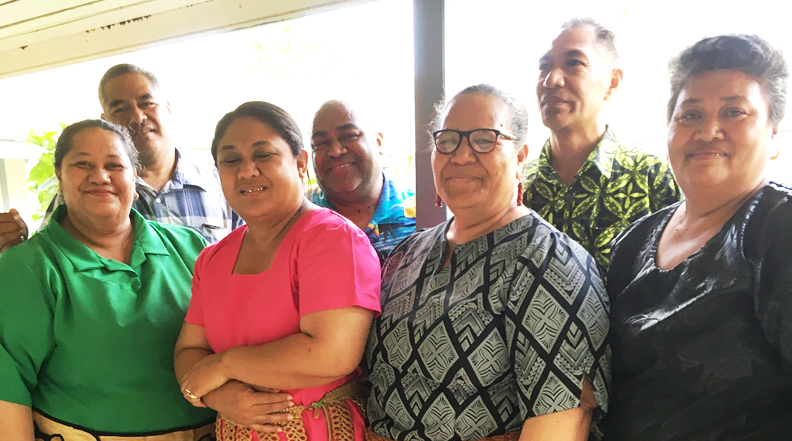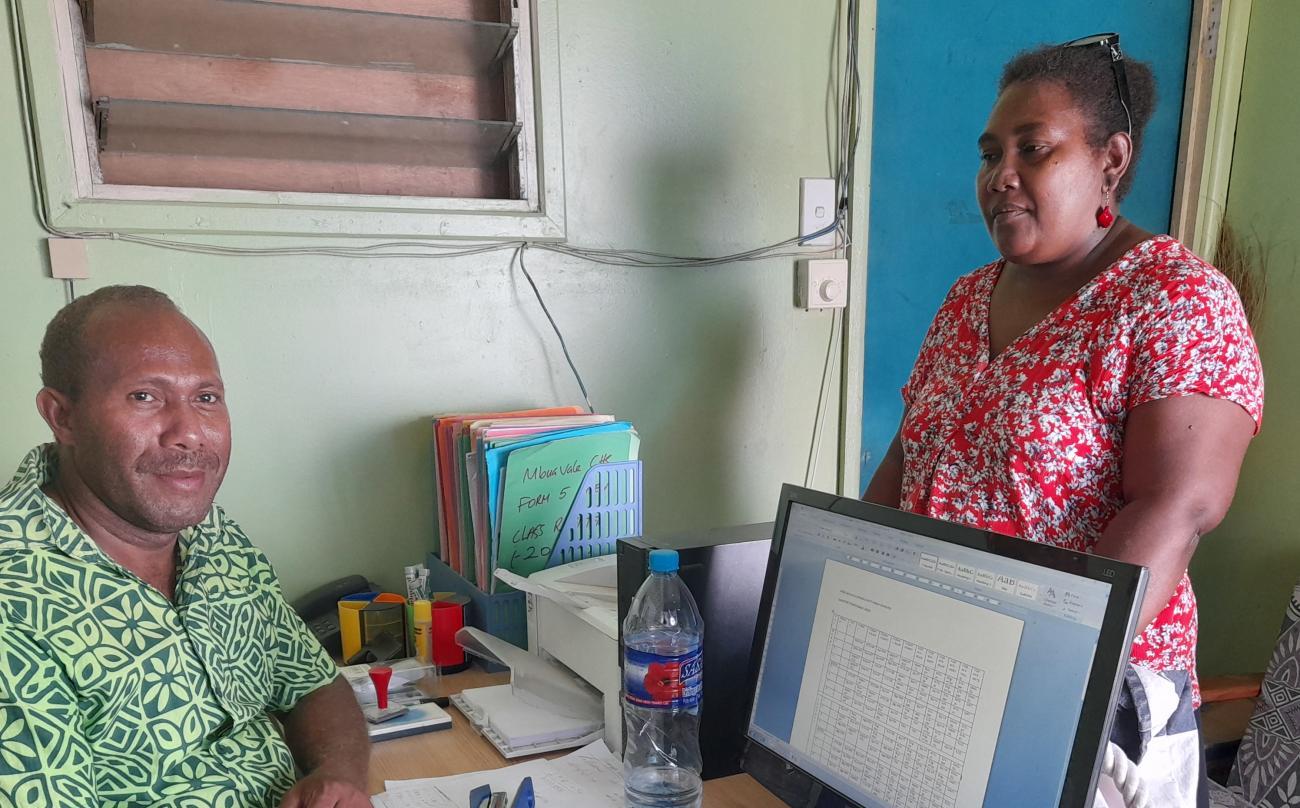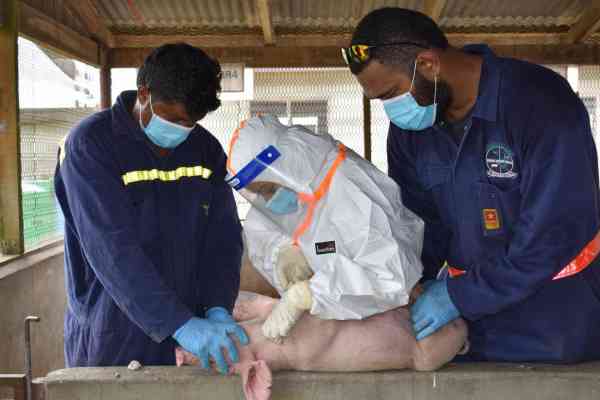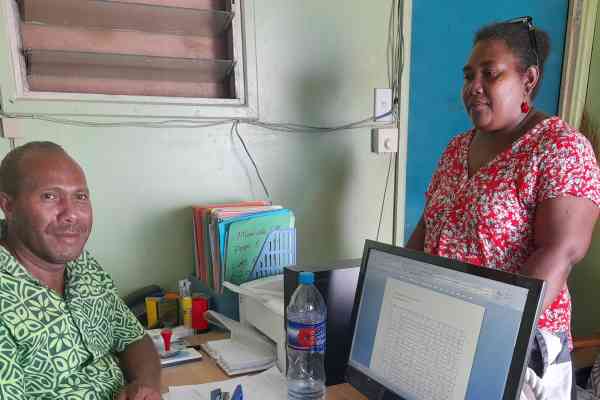Photo: Mary Inasimae and her deputy, Joseph Fakaia
The Pacific Community (SPC) has successfully piloted two school leadership innovation programmes, one for Solomon Islands and the other for Tonga, fulfilling its important role in strengthening and supporting national education systems and policies in the Pacific.
The innovation programmes, delivered by SPC’s Educational Quality and Assessment Programme (EQAP) and supported with funding from the New Zealand government’s Funding with Intent mechanism, included a mentoring programme in Solomon Islands and an induction policy in Tonga.
“The innovations have been a remarkable success, especially considering that both countries had to implement their programmes during the uncertainty of the global pandemic,” said EQAP’s Policy and Research Team Leader Michael Noa. “The clarity with which each of the countries owned the design and implementation processes clearly led to the success.”
The programmes were jointly designed by EQAP, the Australian Council for Educational Research (ACER) and the University of the South Pacific’s Institute of Education. Learnings from these innovations are intended to help refine the two countries’ policies and support for their school leaders.
Under the Solomon Islands mentorship programme, four school leaders or principals were partnered with retired school leaders. The mentoring programme required each principal to identify a key challenge to solve with the guidance of their mentor.
Mary Inasimae, the principal of the Honiara-based Bua Vale High School, said the mentorship programme boosted her confidence to lead her team and to better engage with the school’s various stakeholders. “The programme has made me more confident as a school leader and has emphasised for me the importance of collaboration,” she said.
Inasimae chose to focus on improving her English teachers’ fluency in using English as the language of instruction. To aid this, she organised support sessions with her English teachers to encourage them and work through their challenges. She also engaged students to support the initiative. Inasimae said the effort paid off in many ways. “Not only are my teachers and students becoming more confident in using English in the classroom but also our team has become even more encouraged and united,” she shared. “I am now working with my teachers to draft an English-speaking policy for our school.”
The Solomon Islands’ Deputy Secretary (Teaching and Learning) Linda Wate said the programme was a wonderful success because despite the short timeframe, the principals improved their management and leadership skills. She said the principals proved themselves to be capable of “thinking outside the box”.
She added that the programme was also “an eye-opener” for the ministry because it led to the drafting of new policies to ensure school leaders receive the full government allocation for the school. All schools in the Solomon Islands, except for two, are managed either by faith-based organisations, provincial governments, or private owners.
Wate said the findings from the programme will also inform their design of the ministry’s 10-year professional development framework for educators, and the new Education Bill that will be submitted for enactment this year.
“The Education Bill will now have more explicit instructions for education providers on how they should manage the schools,” said Wate.
Tonga’s Ministry of Education and Training (MET) was similarly delighted with the funding support that enabled its Quality Assurance Division to develop an induction handbook for primary school principals.
“For the first time, we now have an induction policy that has been adopted in-house,” said the ministry’s Chief Executive Dr Tangikina Steen. The ministry will orient all its school leaders on the induction policy and handbook this year.
Aside from the handbook, Tonga also piloted a mentorship programme in which six school leaders, most of whom were appointed to their leadership roles in 2020, undertook the programme. “They were oriented on how to be an effective school leader with the support of three dedicated mentors (experienced school principals and school officers) and the induction handbook,” said Dr Steen. “Preliminary findings from the interviews with our principals reveal that they really love it.”
She said even the mentors commended the induction programme. “They said had they received this sort of support when they started out as principals, they would have done a better job; they simply have been learning from their own experiences,” she said.

Noa said the success of these two programmes underscores the importance of properly orienting new school leaders into their roles. The empowerment of teachers and school leaders is one of EQAP’s key goals. Tonga and Solomon Islands were among the countries that requested support in 2020 to strengthen its school leadership.
This project was supported by Funding with Intent, part of the New Zealand Ministry of Foreign Affairs and Trade – Pacific Community Partnership. These funds are used to design and test innovative responses to development opportunities, and support peer-to-peer learning between SPC’s member countries.
By Irene Manarae, Communications Assistant, Educational Quality and Assessment Programme (EQAP)



